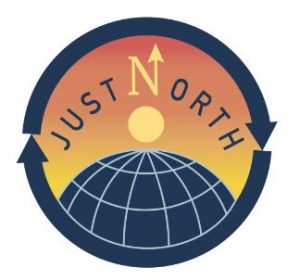This chapter considers what might be deemed relevant normative standards when taking responsibility for the effects of rising global temperatures on the territories and communities of the Arctic. Are globally produced harms chiefly the responsibility of territory-specific communities in terms of their dire effects, as is often assumed?
Skillinton, Tracey
This chapter considers what might be deemed relevant normative standards when taking responsibility for the effects of rising global temperatures on the territories and communities of the Arctic. Are globally produced harms chiefly the responsibility of territory-specific communities in terms of their dire effects, as is often assumed? The focus will be on the unjust basis of this assumption. Alternatively, it will propose a relational model of responsibility where emphasis is placed on the interconnections between peoples, regions, climate actions and outcomes. In response to the need to actualize a more embracing conceptualization of climate justice, prospects for a ‘civic connections approach’ will be critically assessed, one where a cooperative imperative, when applied across sectors and regions, works to address the ‘multiple domination’ (Forst, 2020) experienced by climate vulnerable communities and further, seeks to establish the presumptive responsibilities of major polluters for injuries caused to the peoples, nature and landscapes of the Arctic.
Read the full article:
https://bristoluniversitypressdigital.com/display/book/9781529224832/ch003.xml
JUSTNORTH
JUSTNORTH is a project designed to explore the multitude of ethical systems that coexist in the Arctic, as a starting point to assess the viability of new economic activities in the region. For the millions of people who live both inside and outside the Arctic and are affected by these economic activities, decisions are made through utilitarian ethical principles: viability of an activity is based on profitability and technical feasibility, with little regard to questions of whether it is ethically right or wrong for the impacted human populations or the environment. Global climate change has launched intense speculation on Arctic resources. Increasing geopolitical tensions among some of the Arctic states increases the importance of respecting different value systems while finding common values to help strengthen the links between Arctic and non-Arctic entities. Significant practice and policy gaps in existing Arctic economic activities have led to development that is unsustainable.
Through understanding current practices of development in the Arctic through the lens of 18 case studies, JUSTNORTH aims to develop conceptual frameworks, indices and a negotiation tool, for reconciling multiple ethics and value systems. These will provide a cornerstone for determining the viability of economic activities in the Arctic, as well as clarify policy, legal, and regulatory pathways for implementing ethic-based decision-making principles.
Global climate change has launched intense speculation on Arctic resources. Increasing geopolitical tensions among some of the Arctic states increases the importance of respecting different value systems while finding common values to help strengthen the links between Arctic and non-Arctic entities. Significant practice and policy gaps in existing Arctic economic activities have led to development that is unsustainable.
Through understanding current practices of development in the Arctic through the lens of 18 case studies, JUSTNORTH aims to develop conceptual frameworks, indices and a negotiation tool, for reconciling multiple ethics and value systems. These will provide a cornerstone for determining the viability of economic activities in the Arctic, as well as clarify policy, legal, and regulatory pathways for implementing ethic-based decision-making principles.
Project details
- Project title: “Toward Just, Ethical and Sustainable Arctic Economies, Environments and Societies”
- Funding scheme: European Union Horizon 2020 Programme (EU H2020, Grant agreement ID: 869327)
- Duration: 3 years (1 June 2020 – 30 November 2023)
- Project coordinator: Uppsala Universitet, Dr. Corine Wood-Donnelly
- Project website: www.justnorth.eu/
